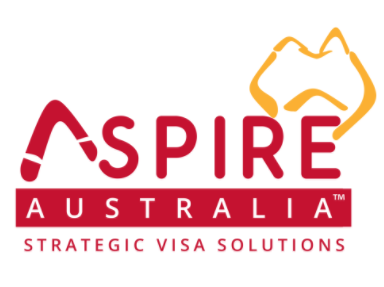Australia’s Migration Skills Assessment forms the basis for a number of Australian skilled visas – from the employer sponsored 482 and ENS Direct Entry visas to post–graduate visas and visas in the General Skilled Migration stream.
The purpose of the Migration Skills Assessment is to verify whether you, as the proposed applicant, have skills in your occupation that are equivalent to the Australian standards. A positive outcome allows you to confidently determine your eligibility for your target visa.
As with most Australian migration processes, you may only have one opportunity to get it right. Risking an unfavourable outcome by doing it all yourself could end your dreams of living and working in Australia.
Getting help with your Migration Skills Assessment
Most candidates decide to D-I-Y their skills assessment for two reasons:
- they believe it is very simple, as simple as filling in a form and
- because of that reason, they see no point in investing in the assistance of a registered migration agent.
These reasons are flawed.
If the skills assessment were so simple, then why has the Department of Home Affairs outsourced that task to specialist organisations? Organisations which use either published or unpublished guidelines to determine a candidate’s eligibility to work in a nominated occupation in Australia, taking into account factors such as
- qualification equivalence
- content
- relevance
- suitability of job tasks.
And if the skills assessment outcome is negative, there is often little ability to manoeuvre in submitting an appeal or a new application.
So, it’s worth asking yourself – is it worth the risk of ruining your visa prospects, for the sake of saving some money?
Here are seven reasons why you should get help from a registered migration agent when it comes to your Migration Skills Assessment.
1. Selecting the correct occupation
Nominating the correct occupation for the migration skills assessment will have far-reaching consequences for your visa application.
In some cases, candidates have the ability to select one or more occupations. It is crucial, therefore, to make this choice strategically.
Have you considered factors such as
- the list on which your occupation falls
- quotas and selection criteria
- interaction with a sponsoring employer’s business
- the Department’s policy on your shortlisted occupations
Making the wrong decision at this first step could hinder your prospects for a visa. But the right decision will see you with the best chances of obtaining not only an initial visa – but perhaps another visa down the track.
The insight that a registered migration agent can offer at this point is crucial to the development of your overall migration strategy.
2. Ensuring eligible employment
Many of the Migration Skills Assessment processes require the analysis of work experience.
Criteria change between assessing bodies. For example – some allow unpaid work, others do not. Some allow pre-qualification employment, others do not. Some have time frames in which employment must be considered. And assessing bodies set their own ‘minimum hours worked’ criterion, amongst others.
Here’s the tricky part – even if you have provided evidence to the skills assessing authority that meets its criteria, have you considered whether that employment can also be used for your visa? Is there any conflict? Will providing certain statements to the skills assessing body conflict with data that you will share with the Department of Home Affairs?
EXAMPLE: One of our clients, let’s call him Roberto, obtained his own positive skills assessment outcome. Great! But when we came to analyse whether the work experience used for the skills assessment could be used to claim points for an EOI, we found
- the dates of employment were not supported by the evidence
- the employment claimed for the skills assessment would not meet the lawful employment requirement for the visa and
- the employment references contained incorrect information.
As a skills assessment outcome – and the evidence used to obtain it – will be assessed by the Department of Home Affairs, it is imperative that information is both correct and supportable.
In Roberto’s case, we needed to adjust his expectations (high after getting the skills assessment) about his eligibility to claim points. We then put another strategy in place to ensure he gained EOI selection.
The lesson: what looks simple, possibly ain’t! It pays to get a migration professional to at least advise and review your material, if not prepare your skills assessment application from scratch.
3. Choosing which qualification to use
There are many factors which can lead to a negative skills assessment – one is that the skills assessment fails because of the qualification.
For example, an overseas qualification may not be considered to be at the same level as an Australian qualification with the same name. This may depend on the university or the level of pass that the candidate has achieved.
As the occupation in which you are seeking the skills assessment may have a core qualification requirement, if you cannot meet that standard – your skills assessment is doomed to fail.
Finding out prior to lodgement can save you time, money and allow you to develop an alternative strategy.
EXAMPLE: Jitender was intending to apply for a GSM visa based upon his degree from India and subsequent skilled employment. On research, however, whilst the university was recognized, the level at which he obtained his degree (third class) meant that his qualification was only considered equivalent to an Australian diploma.
The good news – we found an alternative route via the subclass 457 (as it was) visa for which work experience (which he had) could satisfy the skills requirement without the need for a qualification.
This alternative pathway saved Jitender from paying for higher level studies. It also allowed him full time work in the meantime, plus a pathway to PR.
4. Assessing all your employment
Many visa candidates (incorrectly) believe that all employment must be assessed by the skills assessing authority. Whilst there may be cogent reasons to have all employment assessed, in most cases there are strong reasons not to do so. Take the example of Roberto above.
Whilst there may be good reasons to have employment assessed where your occupational experience may be unclear, there are also reasons not to do so.
What if you claim employment that cannot be evidenced?
What if you claim the wrong periods of employment?
What if that employment was not lawful?
What if in fact your employment is rejected as being unsatisfactory?
An experienced registered migration agent will be able to advise you about these factors, weighing up the benefit and the risk and allowing you to make an informed decision.
5. Getting your employment reference & evidence up to scratch
When having employment assessed, the employment reference is a key piece of evidence.
A good reference will clearly describe your tasks so that an assessing officer can understand how, and whether, they relate to the occupation in which you are seeking assessment.
Many candidates consider that copying and pasting the ‘official’ occupation description into an employment reference is sufficient. They reason ‘Well, I did in fact do all those tasks, so what is wrong with just listing them as per the guide?’
The issue here is – the migration skills assessment body will doubt the veracity of your claims and may therefore refuse your application.
EXAMPLE: This is what happened to Ashita. Having her employment assessed by Engineers Australia (which we would likely have advised against as per point 4 above).
Ashita copied the ANZSCO occupation description word for word. Naturally, the assessing body doubted the veracity of the claims, having no context in which to understand how those tasks were undertaken for the named employer, and a negative assessment ensued.
Engaging Aspire Australia, we assisted Ashita by teasing out the information about all of the tasks undertaken. We helped research the context of those tasks and provide a detailed employment reference that ‘made sense’ and aligned closely with the occupation. Success!
The reference, of course, is one piece in the jigsaw and supporting evidence is also required.
EXAMPLE: Biresh came to see us when he received a second RFI from the Department of Home Affairs in relation to his application for a Skilled Independent GSM visa.
The Department invited Biresh to respond to adverse information regarding his alleged Australian employment. They claimed that false and misleading information had been provided.
Unwittingly, Biresh had provided a range of documents which, on closer inspection, were inconsistent and contained incorrect information. The Department’s first RFI sought additional supporting evidence so that his claim to lawful employment in Australia could be assessed.
Biresh responded quickly but did not carefully consider the documents. Superannuation had not been paid by the employer. Dates and working hours stated in the reference were not aligned with the payslips, explanations were not provided.
For nine months, Biresh had been responding to the Department’s requests, alone. He was then given one, final chance to set the record straight. Otherwise, the result would be a refusal – and a three-year ban on making another visa application for Australia.
Engaging a qualified and experienced migration agent prior to submitting any documents to the Department is essential. This will ensure you do not put your eligibility – and your family’s future – at risk.
6. Applying for the correct skills assessment
As we previously mentioned – skills assessments can be used across a number of visas and most assessments are mandatory.
But did you know that there are different types of skills assessments for the one occupation, depending on the target visa? Obtaining the incorrect assessment could mean that you submit an invalid visa application, or at least delay your ability to lodge a valid application.
Applying for the correct skills assessment may also mean that you can use that assessment across different visa applications, now and into the future.
Something to note: skills assessments may have validity periods as stated on the document and they are also only usable within three years for a visa application.
7. Is it worth the Time, Effort & Worry?
Submitting and resubmitting applications wastes your valuable time and money. Ultimately, it can also cost you your eligibility for an Aussie visa.
Is the anxiety and risk of refusal that comes with doing your Migration Skills Assessment by yourself, worth it?
We think not. Engaging a skilled and experienced migration agent, who understands the criteria, the context and the big picture – is worth every cent.
You may think that the examples provided in this article are far-fetched, made-up or isolated. Not at all.
Every week we consult with visa candidates who have made, or who would have been about to make, essential errors when it comes to their skills assessment.
As we like to say, if you build a skyscraper on a base of sand, don’t expect to be living in the penthouse for long.
So if you’re wanting a hand with this process, book a Discovery Session with our Migration SuperHero, Sarah Gillis.
Sarah will advise, guide and assist you to have the best possible chance of obtaining a successful outcome for your Migration Skills Assessment, and take you one step closer to your Aussie dream!









